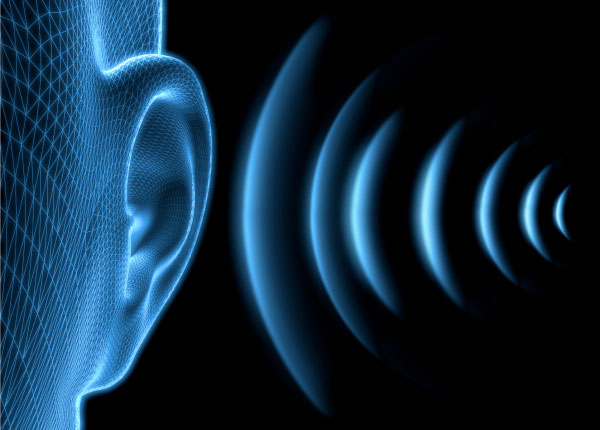
Hearing aids can help seniors with hearing loss stay healthier and happier, yet many are reluctant to wear them. Cost is often a factor, because Medicare doesn’t cover hearing aids. However, there’s also the perceived stigma associated with “looking old.”
But remember: if you need a hearing aid, you’re in good company! Famous people with hearing loss include:
- Presidents Theodore Roosevelt, Ronald Reagan, and Bill Clinton
- Actors Jodie Foster, Halle Berry, and William Shatner
- Musicians Steve Martin, Huey Lewis, Roger Daltray, Eric Clapton, and Will.i.am
- Comedians Steven Colbert and Whoopie Goldberg
Hearing Loss in Seniors is Common
For most people, hearing loss is a natural part of aging that is sometimes exacerbated by life experiences like military service, long-term exposure to loud music and industrial noise, or health-related issues. The NIH reports that approximately one-third of seniors between the ages of 65 and 74, and nearly half of people older than 75 have hearing loss.
Even so, only about 20% of seniors who need help hearing actually seek out medical advice and get help. Part of the reason is that hearing loss is gradual, and people learn to make accommodations – like turning up the sound on the TV or radio. However, those types of coping skills only help with mild hearing loss.
Dangerous Side Effect of Senior Hearing Loss

Hearing loss isn’t just an annoyance; it also has adverse physical and cognitive effects on people.
- Social Isolation: Untreated hearing loss is linked to loneliness, depression, and social isolation – all of which are risk factors for cognitive decline.
- Fall Risk: Even mild hearing loss increases the risk of a fall by 300%, and the risk rises even more with every 10 decibels of hearing loss. People who can’t hear well are less aware of what’s going on around them. They may not notice the barking puppy on the floor in front of them, for example.
- Cognitive Decline: A 12-year-long Johns Hopkins study found that mild hearing loss doubled the participants’ risk of developing dementia. People with hearing problems begin avoiding social situations and other everyday interactions with others.
- Driving Ability: Although hearing loss doesn’t affect your own driving ability very much, it’s still a safety concern. Hearing problems can make you less aware of your surroundings – emergency sirens, blaring horns, etc. Keep the car windows rolled up to reduce street noise. Reduce other competing for your attention inside the car, like the radio and passenger conversations.
If you have a family member with hearing loss or other health issues that affect memory and/or judgment, a GPS-enabled medical alert system with a caregiver-tracking app can help stay in touch and locate your loved one in case of emergency.
How to Pay for Your Hearing Aid

Seniors with higher incomes are more likely to purchase and wear hearing aids. This isn’t surprising, because hearing aid prices start at around $2500 and go up from there. Finding the best hearing aid and deciding how to pay for it takes time and effort, but the results of untreated hearing loss make the process worth it.
Unfortunately, even with all we know about the medical side effects of hearing loss, Medicare treats the condition as a “normal” part of aging. That means traditional Medicare doesn’t pay for routine hearing tests or hearing aids. However, Part B may cover prosthetic devices that improve hearing, including cochlear implants and bone-anchoring hearing aids (BAHA).
Other hearing aid payment options include:
- Medicare Advantage (Part C) plans: Most MA plans offer coverage for routine hearing tests and at least partial coverage for hearing aids. Check with your plan provider for details. Remember that you can switch between plans during Open Enrollment each fall.
- Medicaid: Some state Medicaid plans cover hearing aids. If you’re a Medicaid recipient, check with your state agency about benefits.
- VA benefits: Many veterans experience some service-related hearing loss that makes them eligible for hearing tests, hearing aids, and even financial compensation. Contact your local VA healthcare facility or regional office to inquire about your eligibility.
- Flexible Spending Accounts (FSA) and Health Savings Accounts (HSA): Both hearing tests and hearing aids are FSA and HSA-eligible expenses. You must have a Letter of Medical Necessity from a physician.
- Non-profit organizations: Several non-profit organizations collect and distribute used hearing aids or furnish new ones to needy individuals. This list of hearing aid resources will help you research your options.
Senior hearing loss is just one common side effect of aging. Vision, balance, chronic diseases, and even cognitive decline happen to most people – even those who lead healthy, active lives. There’s no miracle cure of any of it, but a home medical alert system can help you or your loved one age in place and maintain a more independent lifestyle.
GetSafe specializes in medical alert systems you don’t have to wear! When you’re at home, you can summon help instantly with our beautifully crafted wall buttons that fit with any decor. We also offer options add-ons for active seniors: wearable buttons with GPS (and optional fall protection) allow first responders to locate you in your neighborhood park or in another state.
Learn more about our standard medical alert packages. Or, call us at 1-888-799-6255 for help with a custom medical alert system that meets your individual requirements.







